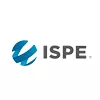Dr. Aspesi was, until January 2021, Senior Partner at Bridge Associates International LLC. He is now a Pharmaceutical Consultant. At Bridge Associates he advised pharmaceutical companies’ management on quality strategy, organizational design, and quality and compliance issues. Before that he was Vice President, Senior Advisor to the Novartis Group Global Quality Head. At Novartis he was the Global Quality Head Pharma Development covering the Good Manufacturing Practice (GMP), Good Clinical Practice (GCP) and Pharmacovigilance and Global Head Quality, and Compliance at the Over-The-Counter (OTC) Division. Prior to his six years at Novartis, Dr. Aspesi was Global Head Quality and Compliance at Wyeth Pharmaceuticals and Global Head Quality and HSE for Aventis Pharmaceuticals. He has 41 years of experience in Drug Substance and Drug Product Quality Assurance, Quality Control, Research and Development, Drug Regulatory Affairs, Chemistry, Manufacturing and Control (CMC), and Analytical Development.
Dr. Aspesi is currently the Chairman of the American Society for Testing and Materials (ASTM) Committee E-55 on Pharmaceutical and Biopharmaceutical manufacturing. He holds a University Degree (Laurea) in Organic Chemistry from the University of Milan, Italy.
How did you become a member of ISPE?
At the time, I wanted to learn about new Analytical and Manufacturing Technologies and thought that networking with peers and colleagues I met through ISPE would be a good way to do so. I was looking for a place outside my company where I could meet colleagues to discuss trends in the pharmaceutical industry and interpret regulators’ expectations.
Can you give me a brief summary of your involvement with ISPE?
I have contributed to various ISPE initiatives like Manufacturing Process Design, PAT, and Quality Metrics and I was a member of the GPMLF for almost 20 years as well as its predecessor Forums.
What have you enjoyed about being a part of Pharmaceutical Engineering magazine?
I enjoy working with the other Committee Members and the genuine effort that everyone puts forth to communicate educational and interesting articles about science and technology topics that are relevant and useful to our 17,000 ISPE Members.
Why would you tell someone they should join ISPE?
Joining ISPE enhances your technical knowledge and allows you to network and connect with colleagues that have probably already solved the challenges that you have in front of you
How did you come to dedicate your career to the pharma industry?
I wanted to develop and deliver new molecules to treat patient diseases and make their lives better.
How has the industry changed over the past 4 decades?
It has changed because of new Technology platforms and digital revolution but we are still dealing with basic GMP’s and Technology issues that were around 20-30 years ago and we haven’t solved yet.
You have worked in the United States, Germany, France, UK, Italy, and South Africa. What are the major differences with the pharmaceutical industry in those countries?
When it comes to regulatory differences, there really aren’t any. The expectations about product quality and product availability are the same across the various countries where I have worked. As for Regulatory Compliance expectations, the European Regulators, while very serious on the subject, are usually more pragmatic that the US ones.
What changes do you hope happen in the pharmaceutical industry in the future?
Technology has evolved from Small Molecule Actives and Bio extractives to DNA recombinant Technologies (mAb’s, etc.) and new Technology platforms for vaccines. There will be more decentralized manufacturing through CMO’s and manufacturing at the Point of Use like at hospitals, particularly for anticancer drugs. Manufacturing at the point of use particularly for Cell and Gene therapy will allow us to pursue the effort to provide Personalized Medicine not only in high income countries but also in low- and medium-income countries. The complexity of the Supply Chain will be simplified. Combination Products (active + delivery system) will be the way to provide treatments to patients and connect the patient digitally with the doctor to monitor treatments and end results.






